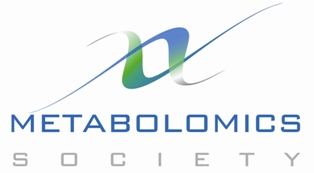
TMIC and the Metabolomics Society
Issue 58 - June 2016
CONTENTS:
Online version of this newsletter:
http://www.metabonews.ca/Jun2016/MetaboNews_Jun2016.htm

 |
| Published
in partnership between TMIC and the Metabolomics Society Issue 58 - June 2016 |
|
CONTENTS: |
|
|
 |
| TMIC
Services |
 |
Metabolomics Society News |
| |
Metabolomics Spotlight
|


| |
MetaboInterview
|
| Senior
NMR Scientist, US National Institute of Standards and
Technology, Charleston, SC, USA |
|
 |
Biography Dan Bearden is a Research Chemist for the US National Institute of Standards and Technology (NIST), at the Hollings Marine Laboratory (HML) in Charleston, South Carolina. Dan earned a PhD in Physics from Rice University (Houston, Texas) and he conducted postdoctoral research in structural biology at the Australian National University, Research School of Chemistry. He was on the faculty of the Chemistry Department of Clemson University for nearly four years before taking up his current position. Currently, he is the NIST Senior NMR Scientist at HML. His current research involves metabolomics for marine environmental research and quantitative NMR. Metabolomics is proving to be a powerful tool for the environmental community, linking biological response to organismal stressors with novel approaches. |
 |
Metabolomics Current Contents
|
Metabolomics Events
|
| 30 May-2 Jun 2016 |
10th conference of the
Francophone Metabolomics and Fluxomics Society
(RFMF)
|
| 14-17 Jun 2016 |
Metabolic Phenotyping in
Disease Diagnosis and Personalised Health Care Lectures will cover data acquisition and analysis with some advanced statistical workshops for more hands-on participation for attendees. There will also be examples of real life applications from the research at Imperial College and their collaborators. Objectives include:
http://www.imperial.ac.uk/imperial-international-phenome-training-centre/courses/metabolic-phenotyping-in-disease-diagnosis-and-personalised-health-care or contact Dr Liz Want (iptc@imperial.ac.uk) for further information. |
| 21-24 Jun 2016 |
Data Analysis for Metabolic
Phenotyping It combines lectures and tutorial sessions to ensure a thorough understanding of the theory and practical applications.
http://www.imperial.ac.uk/imperial-international-phenome-training-centre/courses/hands-on-data-analysis-for-metabolic-profiling or contact Dr Tim Ebbels (iptc@imperial.ac.uk) for further information. |
| 27-30 Jun 2016 |
Metabolomics 2016 The conference programme will cover all aspects of metabolomics under five broad themes: Metabolomics in Nutrition and Food Research, Metabolomics in Health and Disease, Advancing the Field, Environmental, Plant and Model Organisms. For further details, visit http://metabolomics2016.org. |
| 17-21 Jul 2016 |
4th Annual Workshop on
Metabolomics Women, members of under-represented minority groups, and individuals with disabilities are strongly encouraged to apply. The metabolome, in distinction to the other –Omics, provides a better assessment of the exposure to the chemicals of life – it is truly intergenomic providing information on “metabolites” coming from ourselves or the model we’re using, the unique, non-human/mammalian compounds we consume as part of our food, compounds generated by the microorganisms that are part of “us”, and other compounds that are in the environments we live in. If ever precision medicine is able to deliver what is claimed it will, it has to include the metabolome context in which genes and proteins are operating. The themes in this fourth year of the workshop are:
|
| 17-21 Jul 2016 |
16th International Conference
of Biochemistry and Molecular Biology The theme of the 2016 Conference ‘Signalling Pathways in Development, Disease and Aging’ will underpin the need for collaboration and cooperation of individuals from a wide range of professional backgrounds. Vancouver is an exceptional location for the Congress. It is renowned as one of the world’s most outstanding convention cities, with the sparkling Pacific Ocean and towering Coast Mountains providing a unique and spectacular setting. The IUBMB 2016 Conference will be held in the East Building of the Vancouver Convention Centre right under the famous sails and perched on the edge of the Pacific Ocean with wonderful space for both scientific presentations and commercial exhibition. The social program highlighting our West Coast cuisine, unique culture and arts, combined with the breathtaking natural beauty and pre- and post congress meetings and tours will underscore the role of Vancouver as one of the world’s most popular tourist destinations. The IUBMB 2016 Conference will provide a wonderful forum for you to refresh your knowledge base and explore the innovations in proteomics and genomics. The Conference will strive to offer plenty of networking opportunities, providing you with the opportunity to meet and interact with the leading scientists and researchers, friends and colleagues as well as sponsors and exhibitors. For further details, visit http://www.iubmb2016.org/. |
| 12-23 Sep 2016 |
2016 International Summer
Sessions in Metabolomics
|
| 28 Nov to 2 Dec 2016 |
Workflow4Experimenters (W4E)
Course 2016 Overview: Pre-processing, statistical analysis, and annotation of metabolomics data is a complex task. The Workflow4metabolomics online infrastructure provides a user-friendly and high-performance environment with advanced computational modules for building, running, and sharing complete workflows for LC-MS, GC-MS, and NMR analysis (Giacomoni et al., 2015). Goals: During this one-week course, participants will learn how to use the W4M infrastructure to analyze their own dataset.Morning sessions will be dedicated to methodology and tools. Afternoon sessions will be devoted to tutoring. Target audience: LC-MS, GC-MS and NMR experimenters (e.g., biologists, chemists) Registration fee: 750 € (Academia) and 1400 € (Industry); Fees include accommodations but not travel expenses Language: English Pre-registration: Monday 30 May 2016 to Friday 15th July 2016 at Workflow4Experimenters course 2016 Contact: contact@workflow4metabolomics.org For further details, visit http://workflow4metabolomics.org/training/W4Mcourse2016. |
| 8-10 Dec 2016 |
4th ICAN Conference Series on
Precision Medicine in Cardiometabolic Diseases
and Nutrition-Related Diseases Save the date. Program and registration coming
soon: http://www.ican-series.com/ |
Metabolomics Jobs |
This is a resource for advertising
positions in metabolomics. If you have a job you would
like posted in this newsletter, please email Ian
Forsythe (metabolomics.innovation@gmail.com).
Job postings will be carried for a maximum of four
issues (eight weeks) unless the position is filled prior
to that date.
Jobs Offered
| Job Title | Employer | Location | Posted | Closes | Source |
|---|---|---|---|---|---|
| Junior Faculty (Instructor/Assistant
Professor) in Metabolomics |
Icahn School of Medicine at Mount Sinai | New York City, NY, USA | 27-May-2016 | Until filled |
Metabolomics Society Jobs |
| Postdoctoral Research Fellow in
Plant Metabolomics |
Norwegian Institute of Food,
Fishery and Aquaculture |
Ås, Norway | 20-May-2016 | 8-Jun-2016 |
Metabolomics Society Jobs |
| Postdoctoral fellows Metabolomics
(Biochemistry, Biology, Chemistry) |
University of Tübingen |
Tübingen, Germany | 19-May-2016 | 10-Jun-2016 |
Metabolomics Society Jobs |
| Joint Postdoctoral Research Position
in Aquaculture Metabolomics |
IMET and NIST |
Baltimore, MD, and Charleston, SC, USA |
18-May-2016 | 30-Jun-2016 |
Metabolomics Society Jobs |
| Postdoctoral Associate -
Biochemistry |
University of Florida |
Main Campus, Gainesville, FL, USA | 2-May-2016 | 2-Jun-2016 |
University
of Florida |
| Postdoctoral Associate Position in
Metabolomics |
Yale University | New Haven, USA | 28-Apr-2016 | |
Yale
University |
| Field Application Specialist
Metabolomics/Mass spectrometry (East Coast) |
BIOCRATES Life Sciences |
East Coast, USA | 26-Apr-2016 | |
BIOCRATES
Life Sciences AG |
| Metabolomics Method Development
Specialist |
Purdue University |
West Lafayette, Indiana, USA | 19-Apr-2016 | |
Metabolomics
Society Jobs |
| Postdoctoral Scientist |
University of Alberta |
Edmonton, Canada | 13-Apr-2016 | |
The
Metabolomics Innovation Centre |
|
Ian J. Forsythe Double AB, MSc Editor, MetaboNews Department of
Computing Science
University of Alberta 221 Athabasca Hall Edmonton, AB, T6G 2E8, Canada Email: metabolomics.innovation@gmail.com Website: http://www.metabonews.ca LinkedIn: https://www.linkedin.com/in/ijforsythe Twitter: http://twitter.com/MetaboNews Google+: https://plus.google.com/118323357793551595134 Facebook: http://www.facebook.com/metabonews |
This newsletter is published in
partnership between The Metabolomics Innovation
Centre (TMIC, http://www.metabolomicscentre.ca/) and the
Metabolomics Society (http://www.metabolomicssociety.org)
for the benefit of the worldwide metabolomics
community.
|